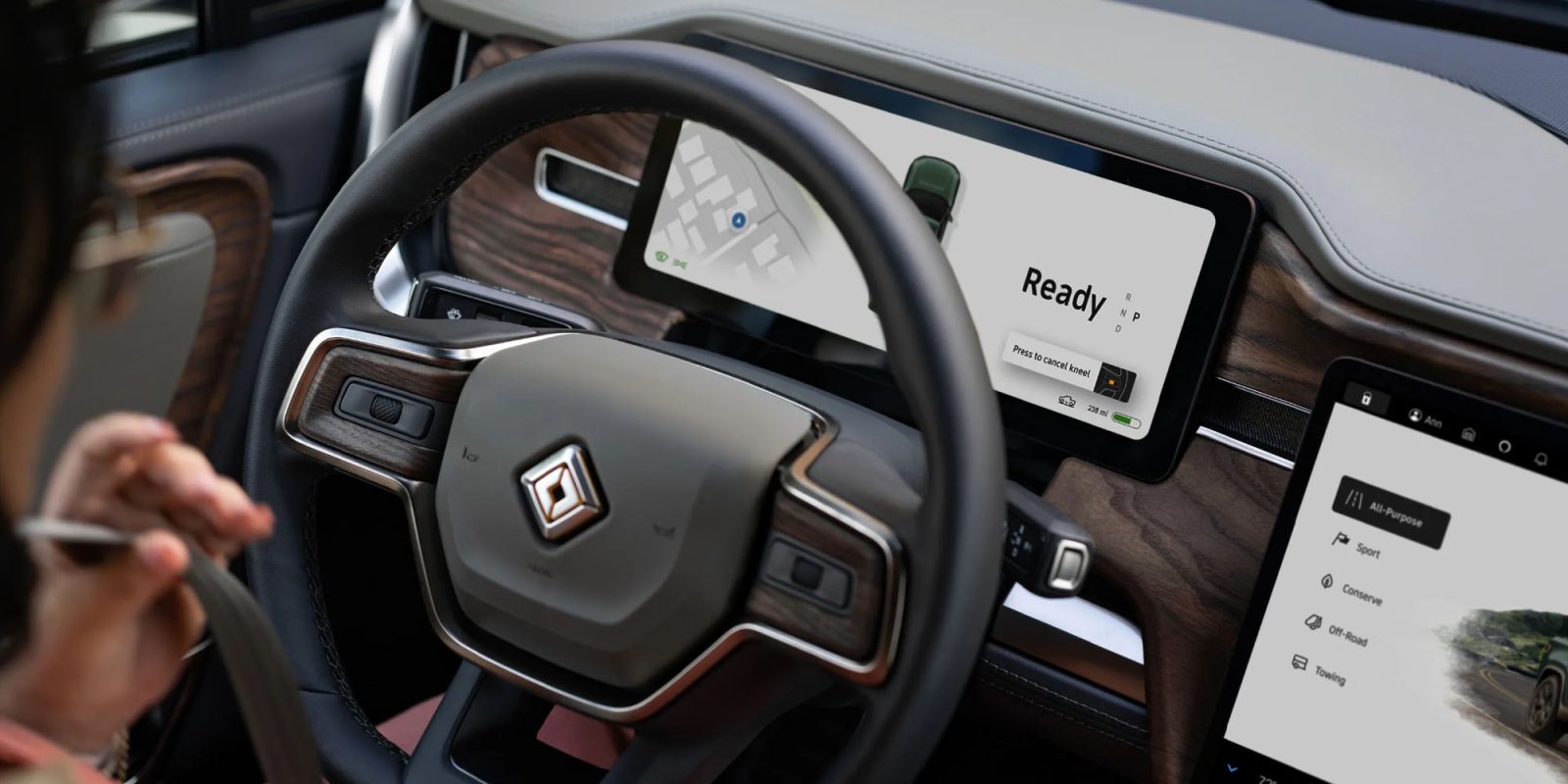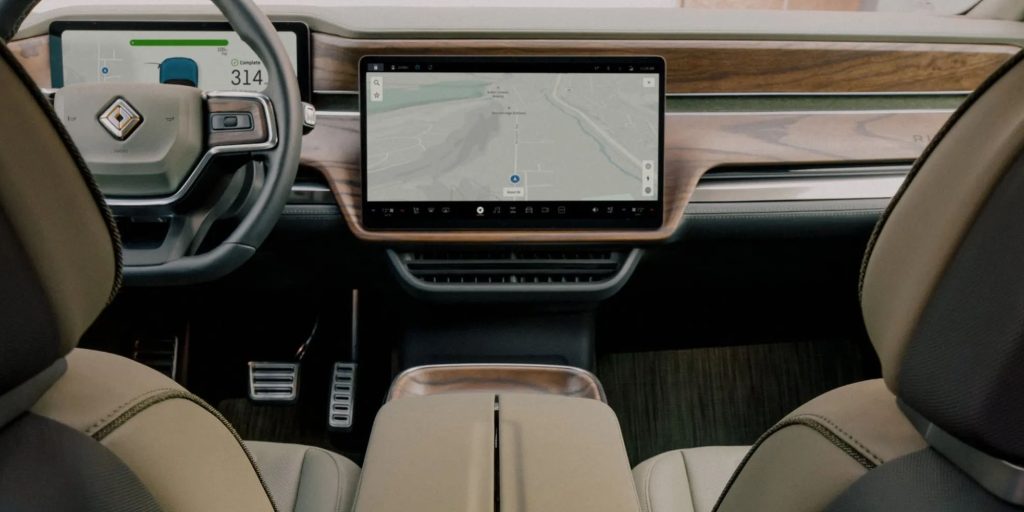
CarPlay is available on the vast majority of cars today, including on electric vehicles from the likes of Ford, Polestar, and others. One of the most notable CarPlay holdouts (alongside Tesla) is Rivian, and new comments from CEO RJ Scaringe today make it clear that the up-and-coming EV company has no plans to adopt Apple’s platform…
Rivian makes it clear CarPlay isn’t coming to its EVs
Speaking to MKBHD on the Waveform podcast this week, Scaringe was asked about Rivian’s lack of CarPlay support. MKBHD specifically pointed to a stat that Apple shared at WWDC 2022, claiming that 79% of car buyers in the United States “only consider CarPlay-capable vehicles.”
Scaringe explains that Rivian’s decision to not use CarPlay is driven by its desire to be the “arbiter or head chef” of the in-car software experience, rather than handing over control to a company like Apple.
“A lot of the things we do, whether it’s music or mapping, we have to make sure we integrate in with the best-in-class platforms. But by controlling the system, it just allows us to be the arbiter or the head chef in terms of the experience you get, versus handing over control of what we think is one of the most important parts of the experience.”
The Rivian founder goes on to say that the company focuses on rolling out updates to its own in-car software on a regular basis, something that he says is only possible by “controlling the software stack.”
“The thing about controlling the software stack is we get to continually make it better. Every few weeks we have a new software release that either adds features, addresses gaps, we listen to feedback. Our head of software development is on Reddit all the time hearing what people are saying and interacting. It’s great to get the feedback and it drives our software roadmap to make sure we’re delivering on what customers want.”
At one point, Rivian indicated that it would maybe add CarPlay in the future if there was enough consumer demand. Scaringe’s comments today seem to suggest that’s not currently on the roadmap.
9to5Mac’s Take
I’ve yet to hear a convincing argument from a carmaker on why they refuse to adopt CarPlay, whether it’s Tesla, Rivian, or GM.
These comments from Scaringe come just a week after GM announced that it will no longer support CarPlay starting with its future EVs. GM’s reasoning was even weaker than Rivian’s with the company blatantly saying it wants to collect additional data on how customers drive and charge their cars.
It’s absolutely fair for a carmaker to want to control the entire in-car experience. That’s a decision they are free to make, and the market will eventually decide whether it’s a right or wrong move. I do, however, think there are multiple things these companies are failing to consider.
CarPlay doesn’t have to take over the entire infotainment experience. It can be an additive option alongside whatever “native” software the carmaker itself wants to offer. If a driver wants to use CarPlay, it’s there as an option.

In fact, it would be perfectly reasonable for Rivian to support CarPlay while simultaneously telling customers that certain features of the car would only be accessible outside of the CarPlay experience. This is already the case on most other CarPlay-enabled cars.
I also don’t buy the excuse that “controlling the software stack” is the only way Rivian is able to roll out software updates on a regular basis. Once CarPlay is added, there’s very little upkeep required by the carmaker itself. I could even argue that supporting CarPlay would remove some of the burden on Rivian. Apple and CarPlay app developers can add new features that improve the Rivian experience without Rivian itself doing anything at all.
To me, these decisions are shortsighted – particularly as Apple works on a slick-looking revamped CarPlay experience coming later this year. Apple already has a long list of carmakers on board, including some of the top EV brands like Ford, Nissan, and Polestar. In my book, this gives those brands an easy leg-up on the likes of Rivian, Tesla, and GM.
The best way I can put it is this: if I were shopping for a car, I wouldn’t completely rule out a Rivian because they don’t support CarPlay. I would, however, consider a competitor like the Volvo EX90 more strongly than I might if Rivian offered CarPlay because Volvo is committed to supporting wireless CarPlay.
Over at Six Colors this week, Jason Snell also penned an excellent column in response to GM’s decision in particular to drop support for CarPlay. As he explains, it’s a “clear case of a corporation prioritizing its own business and technical interests over the needs of its users.”
Are you willing to consider cars that don’t support CarPlay? Do the features offered by cars from Tesla, Rivian, and GM outweigh the benefits of CarPlay? Let us know in the comments.
Follow Chance: Twitter, Instagram, and Mastodon
FTC: We use income earning auto affiliate links. More.





